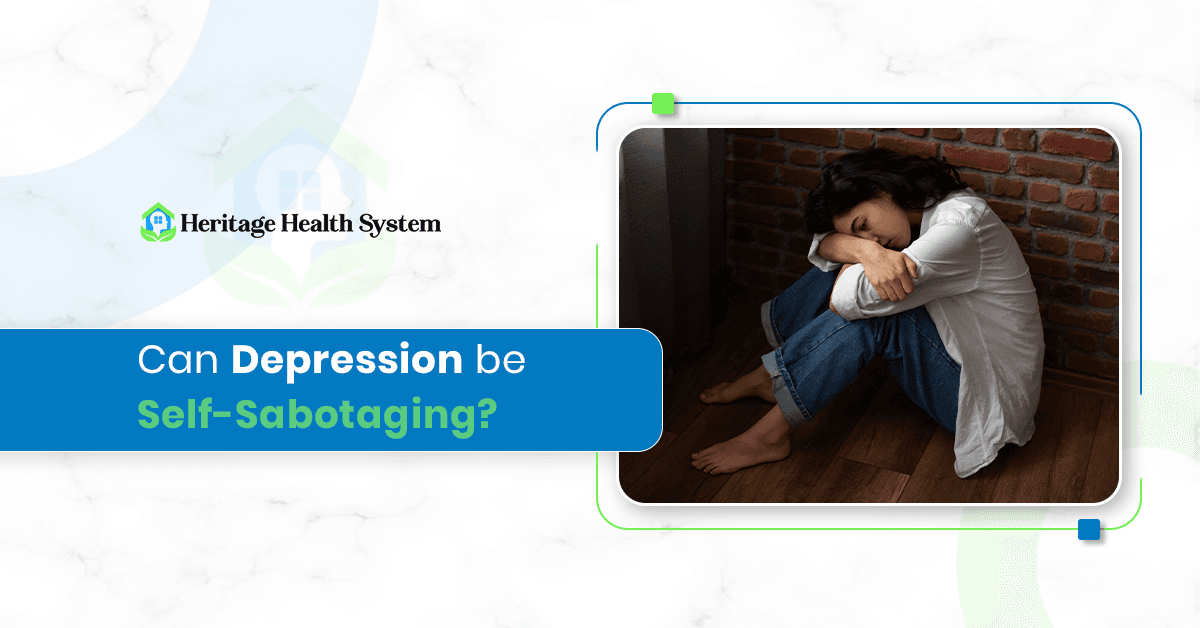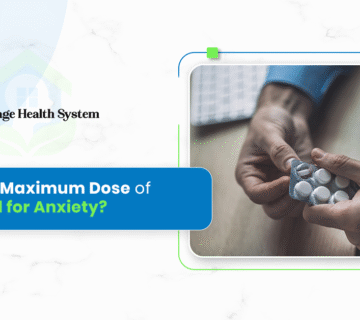Depression can do more than just make you feel sad or tired. It can quietly change how you treat yourself. One of the most damaging ways it shows up is through self-sabotage.
You may not even notice it at first. You miss deadlines, push people away, or quit things that matter. Over time, these choices pile up. You feel worse, and the cycle continues.
So let’s dig into the question: Can depression be self-sabotaging? The short answer is yes. And knowing how it works is the first step to taking back control.
What is Self-Sabotage?
Self-sabotage is when you get in your own way. It’s when you say you want something but act in a way that blocks it. Everyone does it sometimes. But when it’s tied to depression, it can become a pattern.
Common examples of self-sabotage:
- Not starting a task because you fear it won’t be perfect
- Picking fights with someone who cares about you
- Ignoring your health needs even when you know better
Self-sabotage can stop progress in every area—school, work, health, or relationships.
How Depression Leads to Self-Sabotage
Depression changes how your brain works. It makes you see yourself and your future in a dark light. That mindset feeds self-sabotaging behaviors.
Here’s how it often happens:
1. Low Self-Worth
Depression tells you you’re not good enough. So you stop trying or set yourself up to fail. You don’t apply for the job. You don’t call that friend back. You assume rejection before it happens.
2. Fear of Failure
You expect to mess up, so you don’t even start. Or you stop midway through. It’s a way to avoid the pain of failing. But it leaves you stuck and unhappy.
3. Avoidance
You put off tasks that matter. The longer you wait, the worse you feel. Then you feel guilty, which fuels more depression.
4. Poor Self-Care
You don’t sleep enough. You eat too little—or too much. You stop moving your body. These choices make depression worse. But in the moment, they feel easier.
Signs of Self-Sabotaging Linked to Depression
Many signs of self-sabotage overlap with symptoms of depression. But here are a few key behaviors to look for:
- Skipping work, school, or chores for no clear reason
- Cutting off people who care about you
- Talking down to yourself constantly
- Starting things strong but quitting as soon as it gets hard
- Making goals that are too big, then feeling like a failure when you can’t reach them
If you see yourself in any of these, you’re not alone. Many people living with depression struggle with these patterns.
Self-Sabotage in Relationships
One area where self-sabotage really shows up is in relationships. If you’ve ever asked yourself, “What is self sabotaging in a relationship?”—here’s what it can look like:
- Pushing a partner away because you fear getting hurt
- Picking fights to test their love or patience
- Not speaking up about your needs
- Believing you’re “too much” or “not enough” to be loved
- Ending a good relationship before the other person gets the chance
This pattern creates pain for everyone involved. And it’s often driven by fear, shame, and low self-worth—all common with depression.
The Cycle: Self-Sabotage and Depression Feed Each Other
Here’s the hard truth: self-sabotage doesn’t just come from depression. It can also make depression worse.
Imagine this:
- You feel low, so you avoid a task.
- The task piles up. You feel overwhelmed.
- You beat yourself up for being lazy.
- Your mood drops even more.
- You avoid even more.
This is how people get stuck in a loop. And the longer it goes on, the harder it feels to break.
Breaking the Pattern
The good news? Change is possible. But it starts with awareness.
1. Name the Pattern
You can’t change what you don’t see. Start noticing when you’re getting in your own way.
2. Set Simple Goals
Don’t aim for a total fix overnight. Choose one small thing to work on. Maybe it’s getting out of bed on time. Or replying to one message.
3. Talk to Someone
Therapy helps. A trained expert can help you spot patterns, change habits, and feel more in control. Support groups help too.
4. Be Kind to Yourself
Self-compassion isn’t weakness. It’s the key to healing. Talk to yourself like you would a close friend. You don’t have to be perfect to deserve help.
When to Get Help
If self-sabotaging behavior is hurting your work, relationships, or well-being, it’s time to reach out. A mental health evaluation can be the first step.
You don’t need to figure it out alone. Professional care can help you understand what’s going on and give you a plan for change.
How Heritage Health System Can Help
At Heritage Health System, we understand how depression can twist your thoughts and habits. Our team offers full mental health evaluations so we can get to the root of what’s going on.
We provide personalized care—whether you prefer in-person visits or telehealth. Our goal is to help you build a plan that works for you.
Don’t keep guessing or suffering in silence. We’re here to walk with you through it.
Call to Action
If you feel stuck in a cycle of depression and self-sabotage, you don’t have to stay there. Real help is possible.
Visit HeritageHealthSystem.com today and take the first step toward healing.




